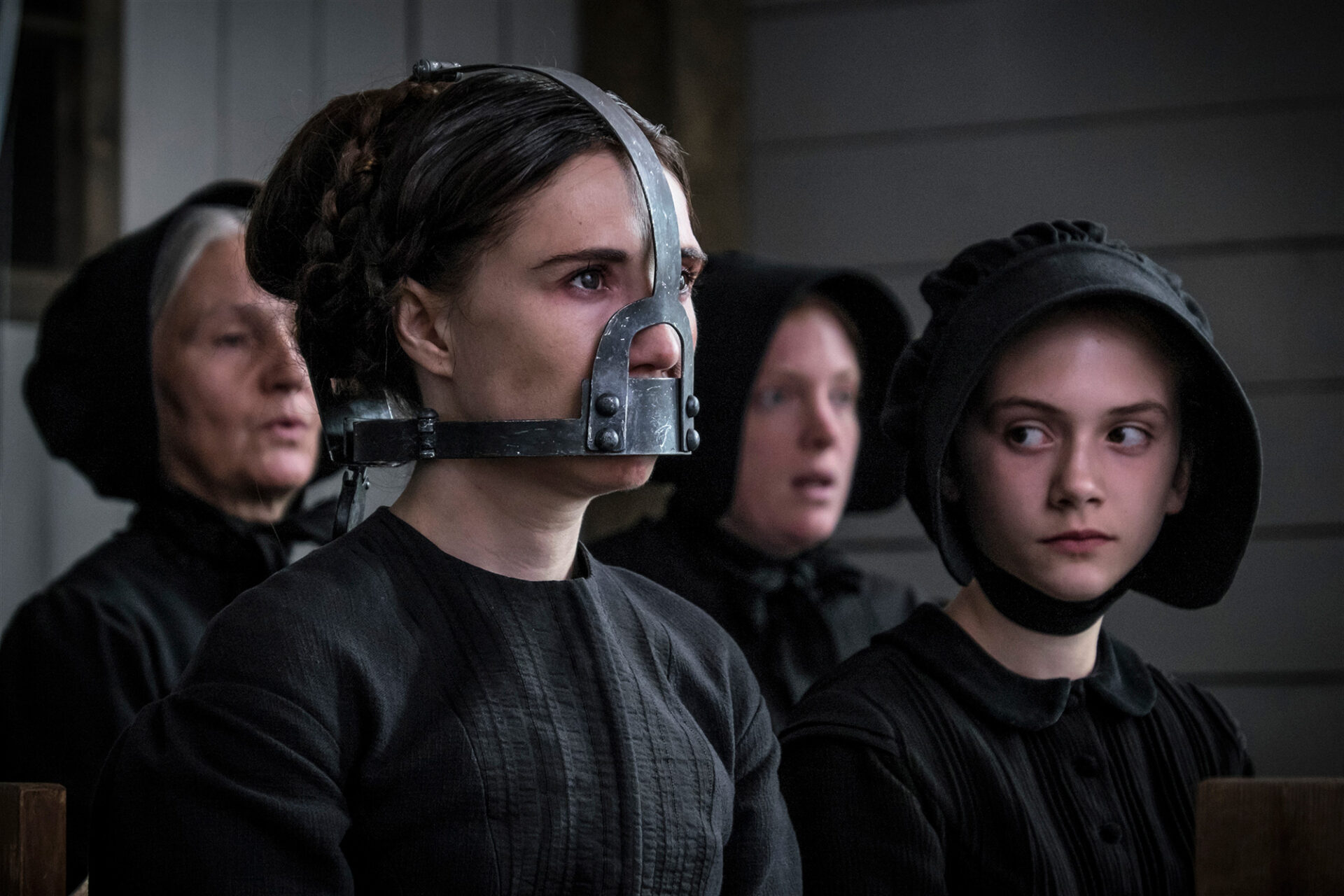Anachronistic storytelling is a tricky thing to pull off. Not only does a filmmaker need to craft a narrative that relies on previously withheld information being doled out through reverse-chronological order, but the story within that narrative needs to be compelling enough to justify the seemingly arbitrary choice to tell it out of order. Brimstone is a success in anachronistic storytelling that offers a bleak and politically charged perspective on female life in the Old West, though it does leave one wanting for the touchstones of more conventional narratives.
Liz (Dakota Fanning) is a mute woman living with her husband, stepson, and daughter on a frontier farm near a frontier settlement, where Liz works as a midwife and is generally respected. One Sunday, a deathly looking preacher (Guy Pierce) with a scarred eye and throat, gives a sermon at the local parish. Liz recognizes the preacher and fears what he is there to do. The story then plays out in four chapters, with each subsequent chapter revealing previous details of Liz’s life and her relationship with the preacher until a climax back in the present day that resolves their conflict with one another.
The reason that the film is even able to function as a compelling narrative is because it uses the slow, deliberate pacing of a suspenseful Western to its advantage, keeping the dialogue minimal and the tension high. Though we always know what the next chapter of Liz’s life entails, the driving force of the plot is discovering who she and the preacher are, and the gradual reveal of their origins makes for an engaging mystery. Wrapped up in this is a heavy commentary on how women have traditionally been treated as property by the men who proclaim to protect them, and a running theme of the film is how women are used and abused by men for their selfish, sexual desires, and then are blamed for fighting back or their own abuse. Rarely is the film graphic, but it is the precise amount of disturbing to make one reflect on the evils humanity unrestricted by social mores.
What the film ultimately lacks, though, is strong character. In part due to the film’s perpetually dour nature, the characters rarely come alive and function as multidimensional human beings. Fanning and Pierce deliver great performances for the archetypical material they’re presented with, but it’s hard to escape the nagging feeling that they’re merely puppets for the social message the film is trying to convey. This in and of itself isn’t a deal-breaker, but with a runtime of nearly two and a half hours and deliberately drawn-out pacing, the film’s first half hour is difficult to become engaged with Liz’s struggles until the central mystery finally takes center stage.
If you’ll allow it, though, Brimstone will grow on you and draw you in to its engrossing plot. It’s a mystery with characters painted in broad strokes, which is thankfully made compelling by the untraditionally anachronistic plotting. Is it perhaps a tad over-long and tedious? Perhaps a little, but there’s enough depth and intrigue to sustain a little tedium.













